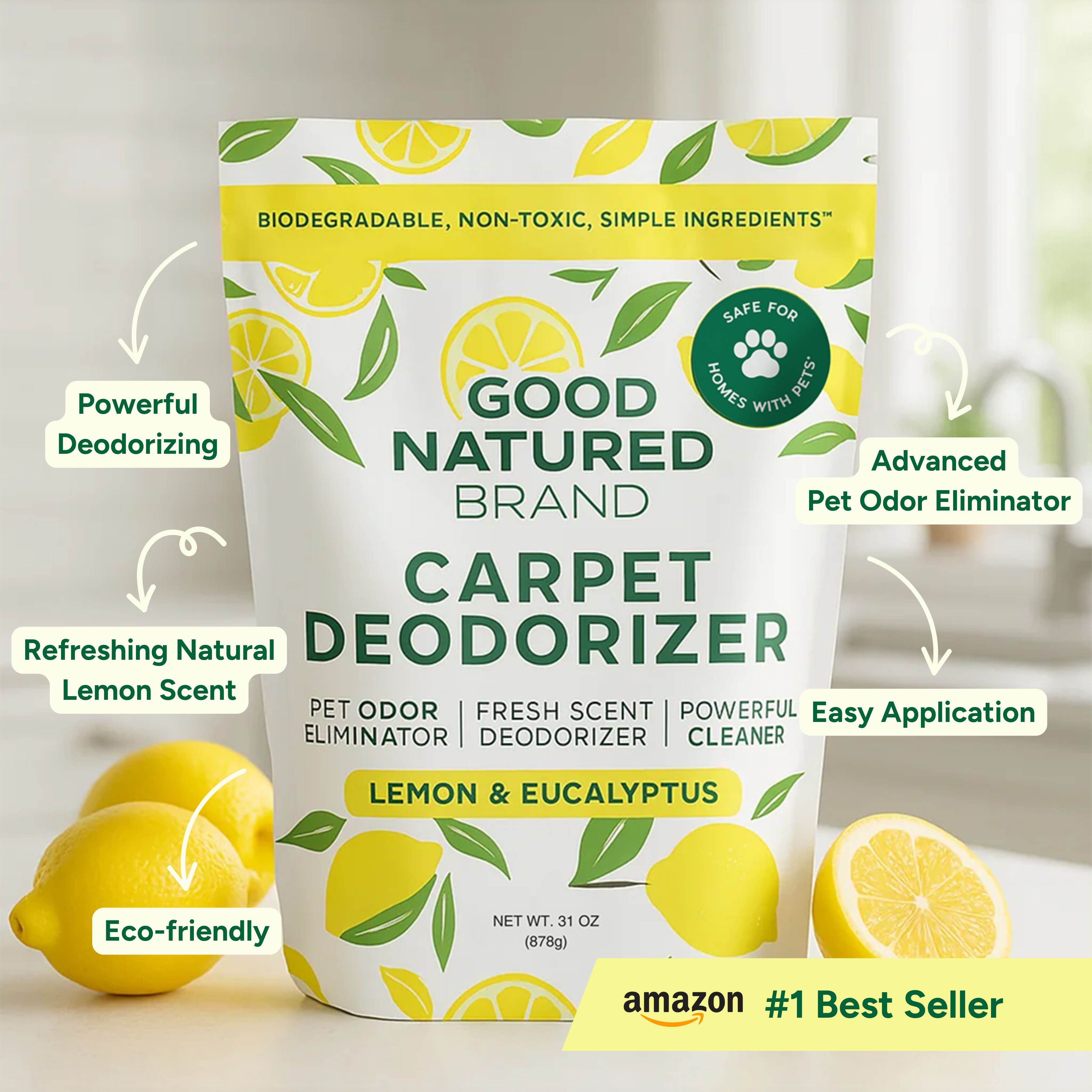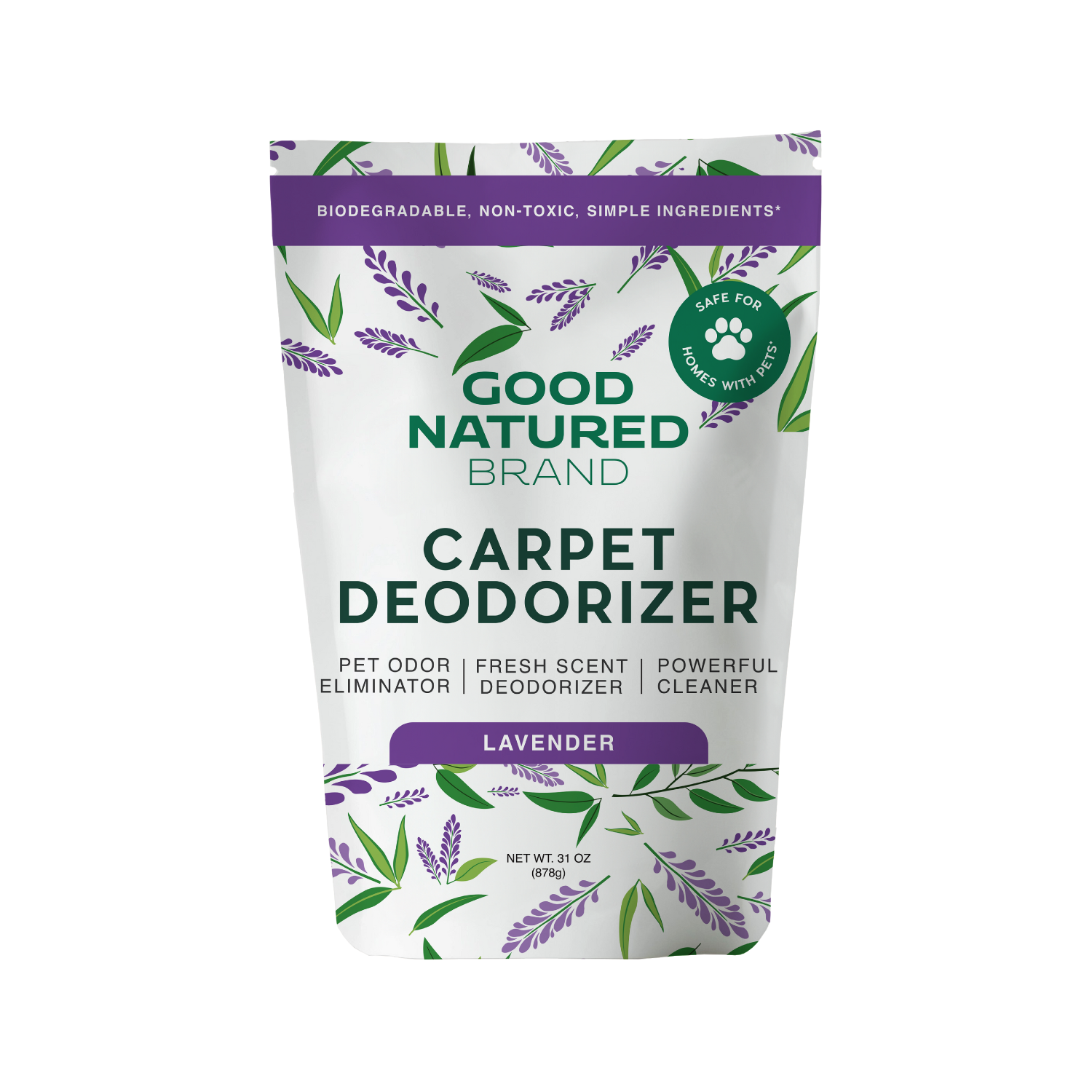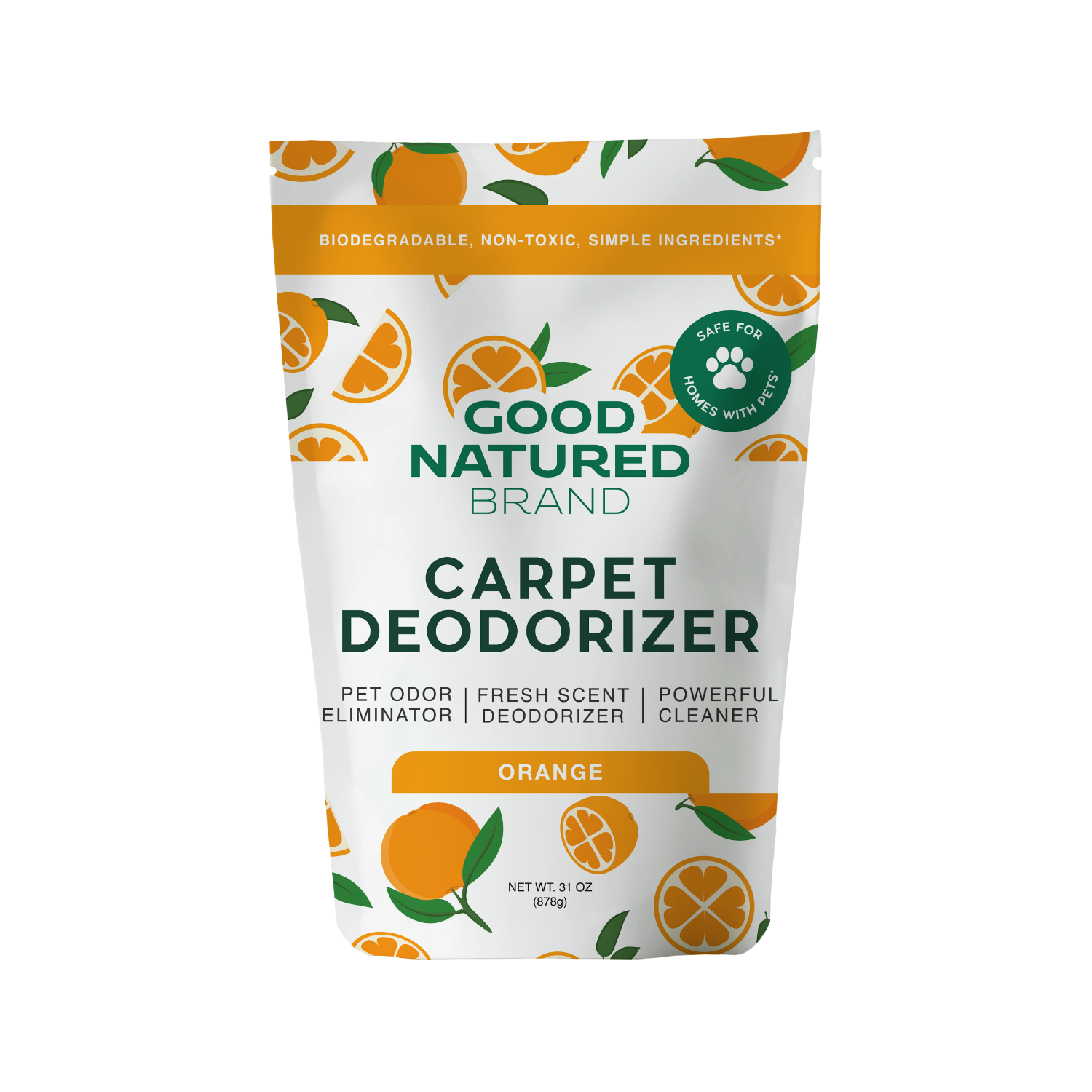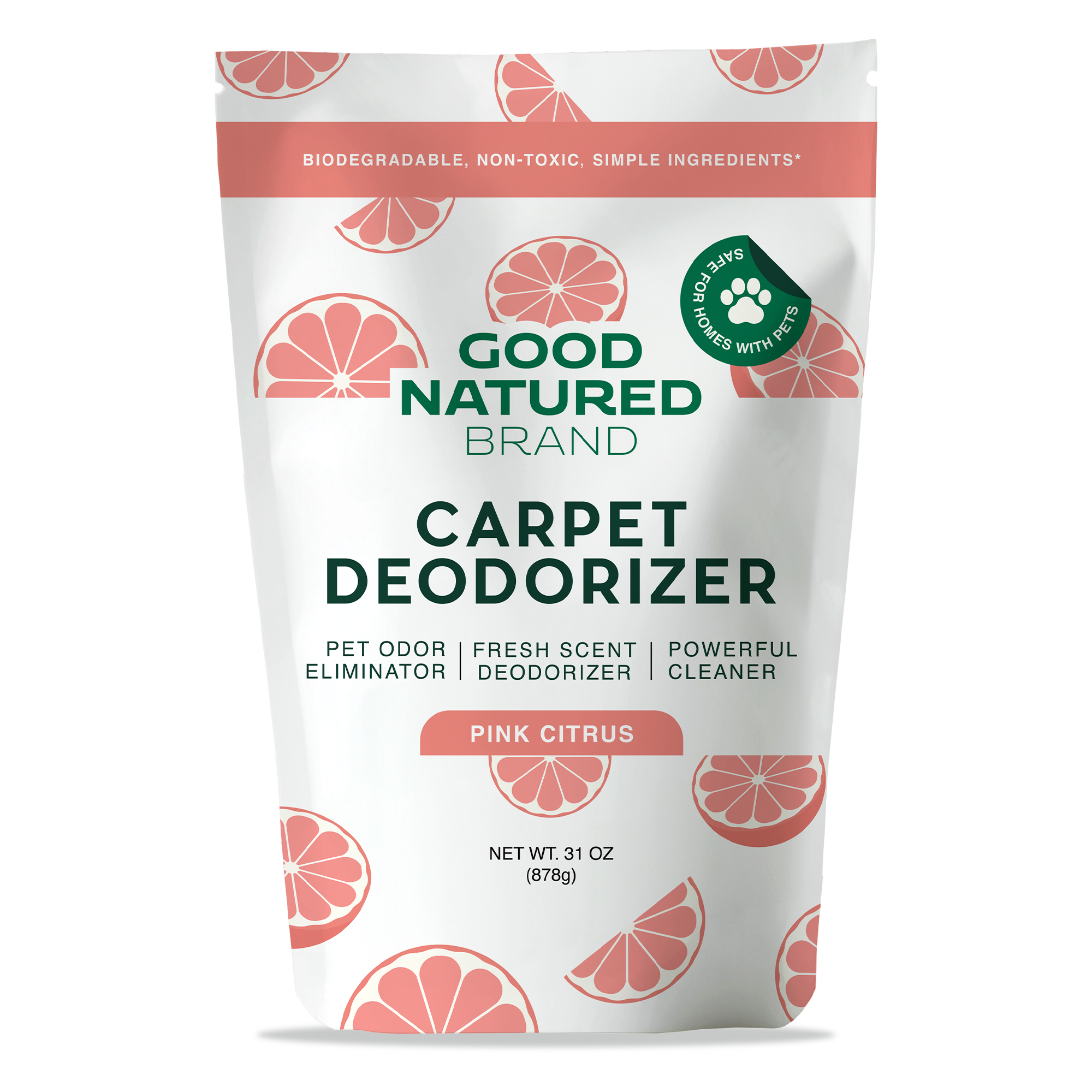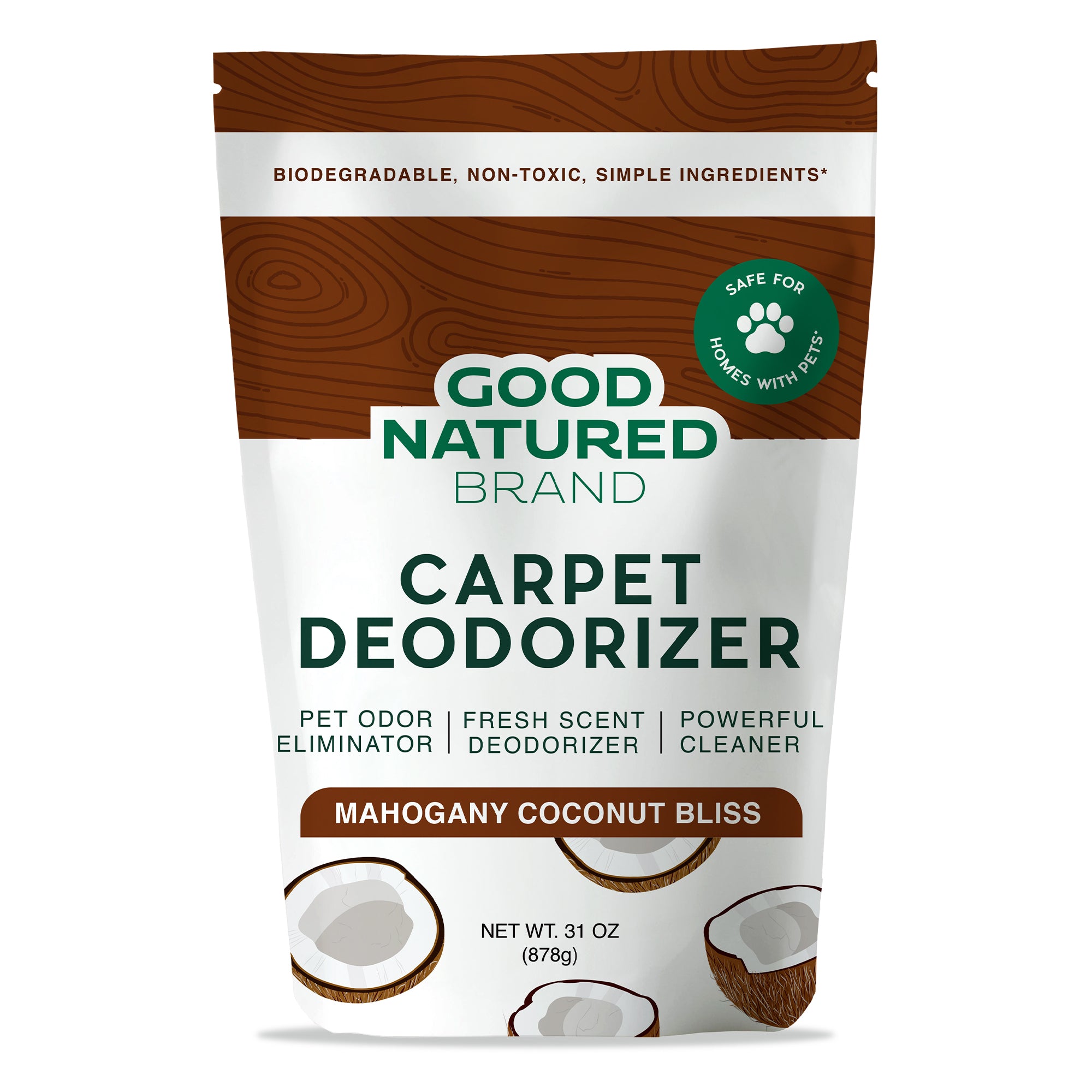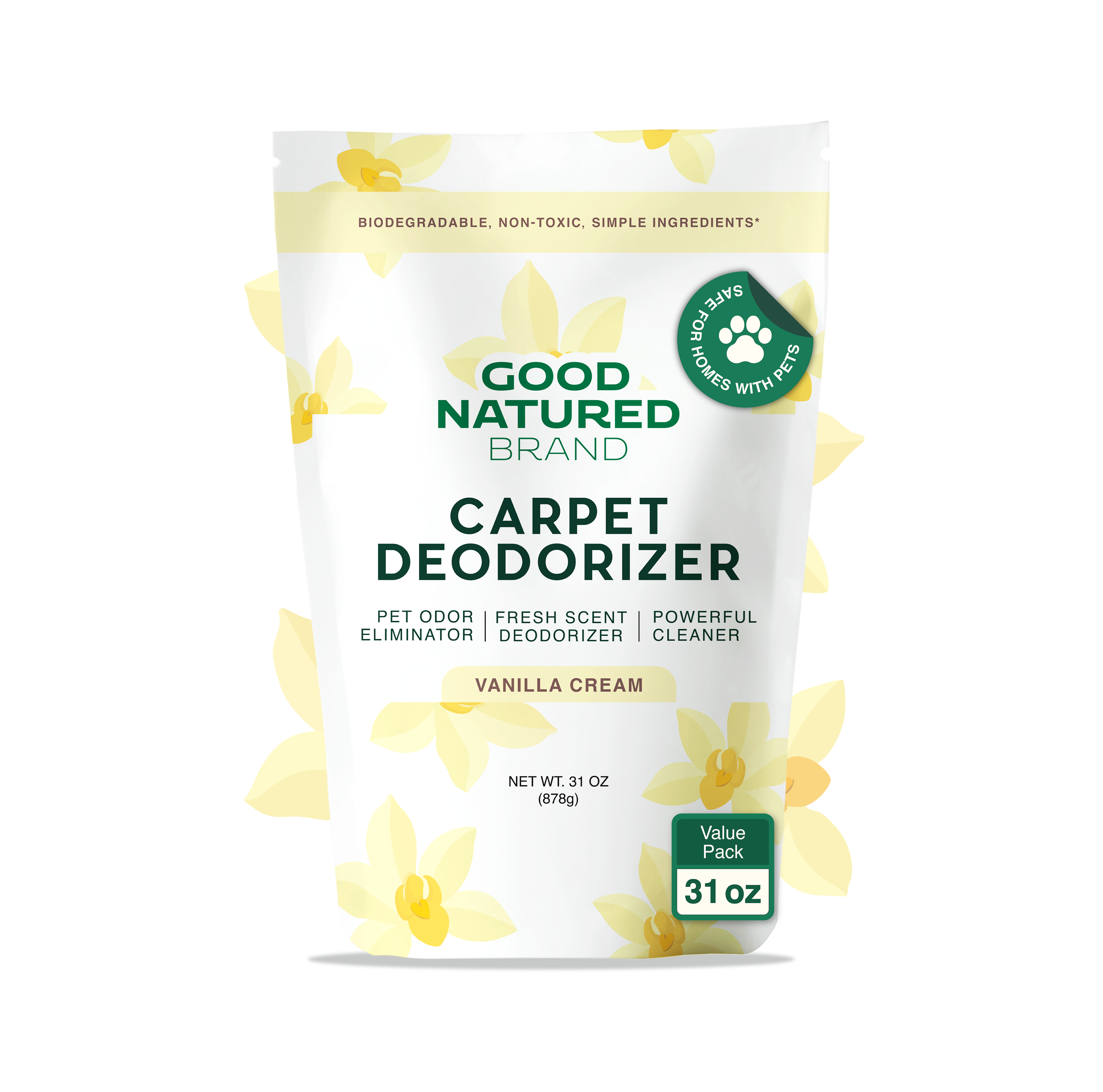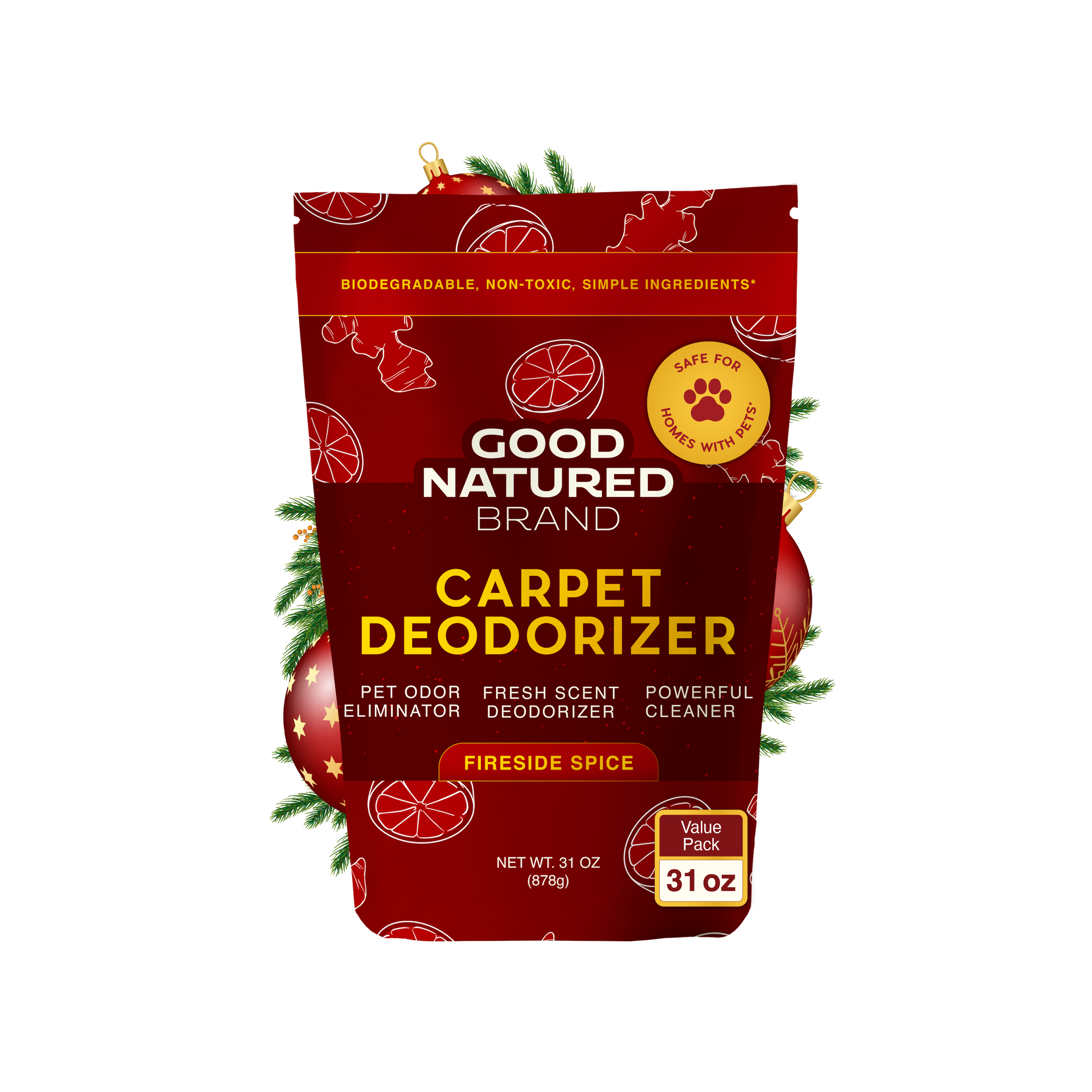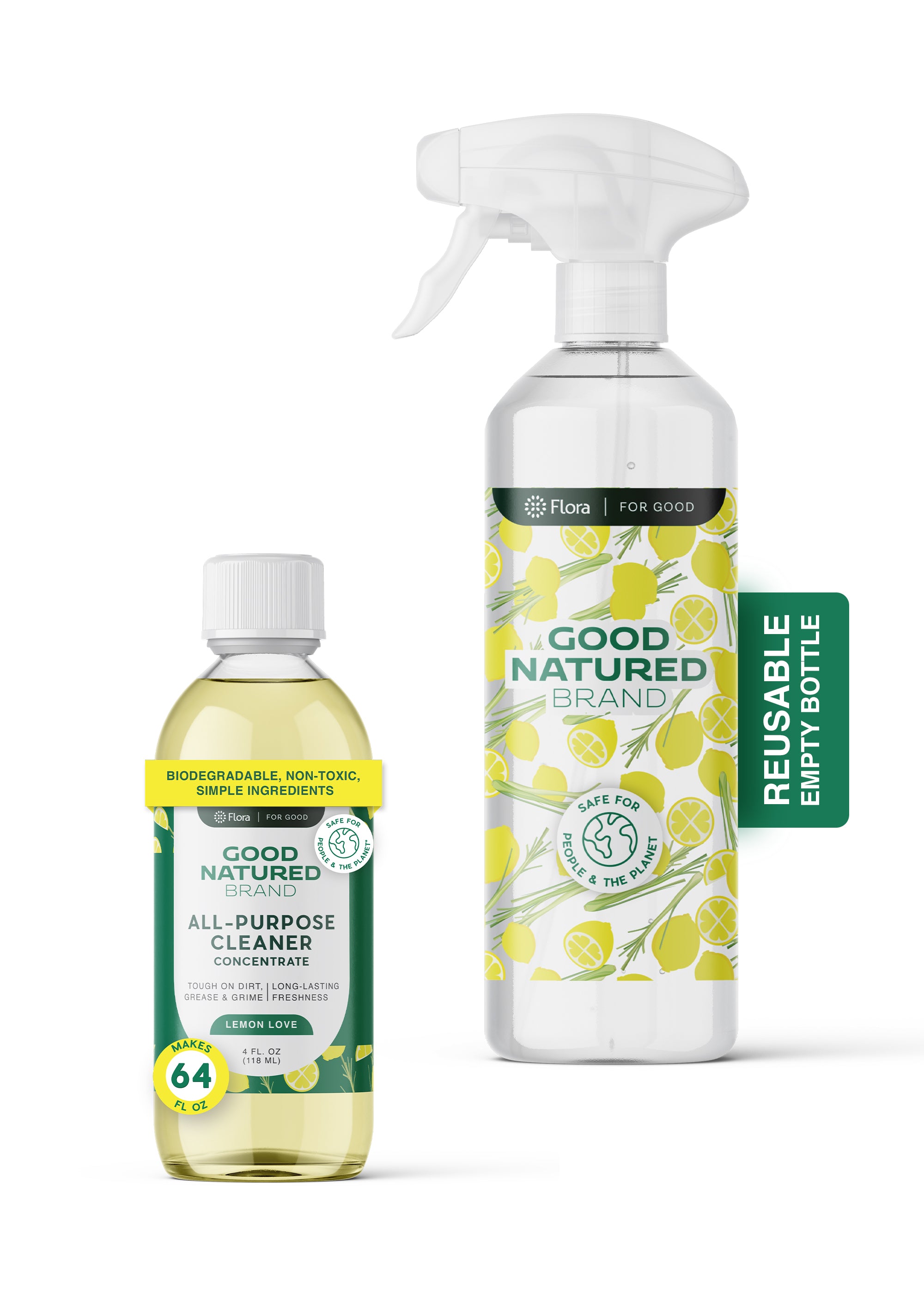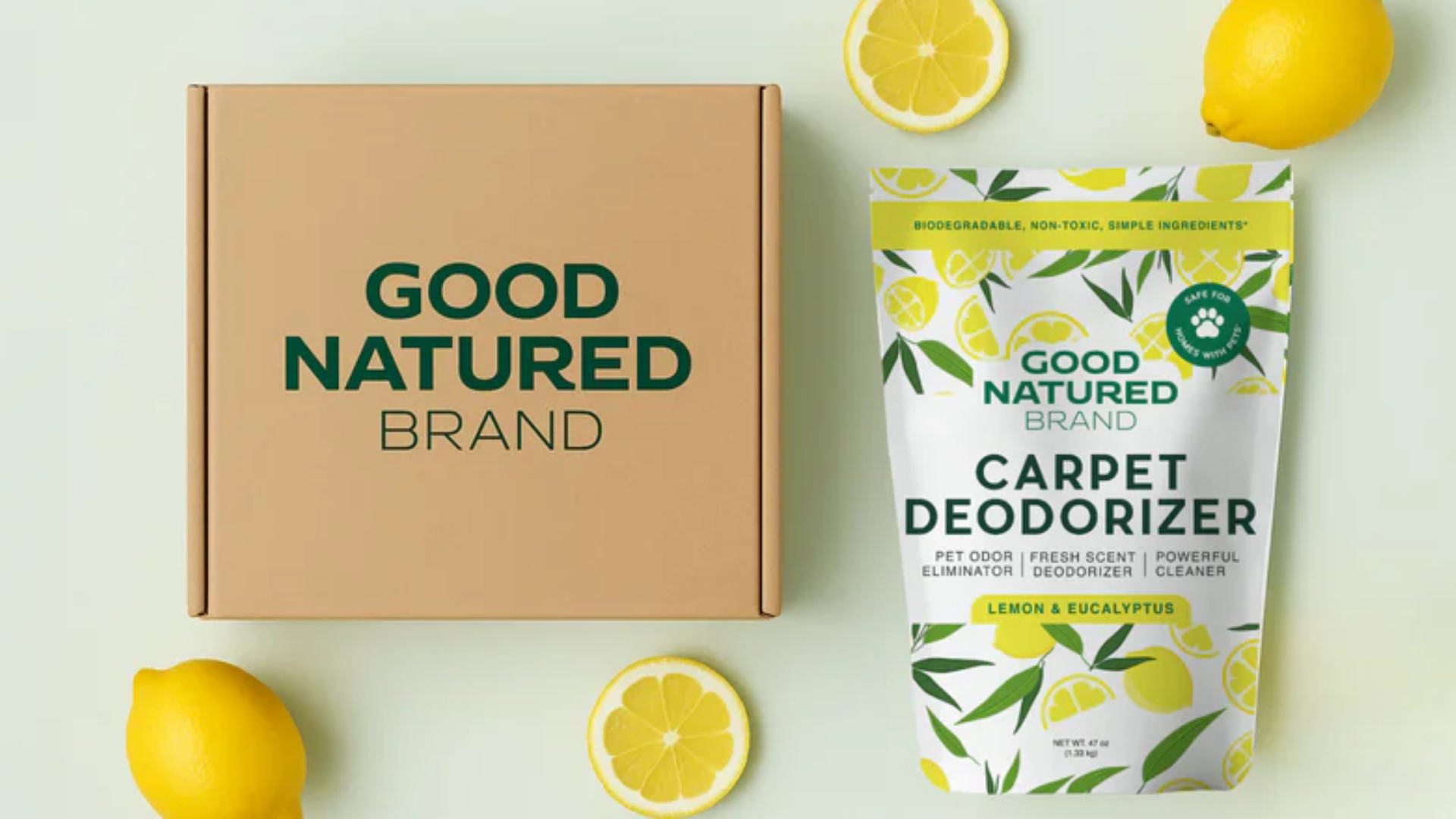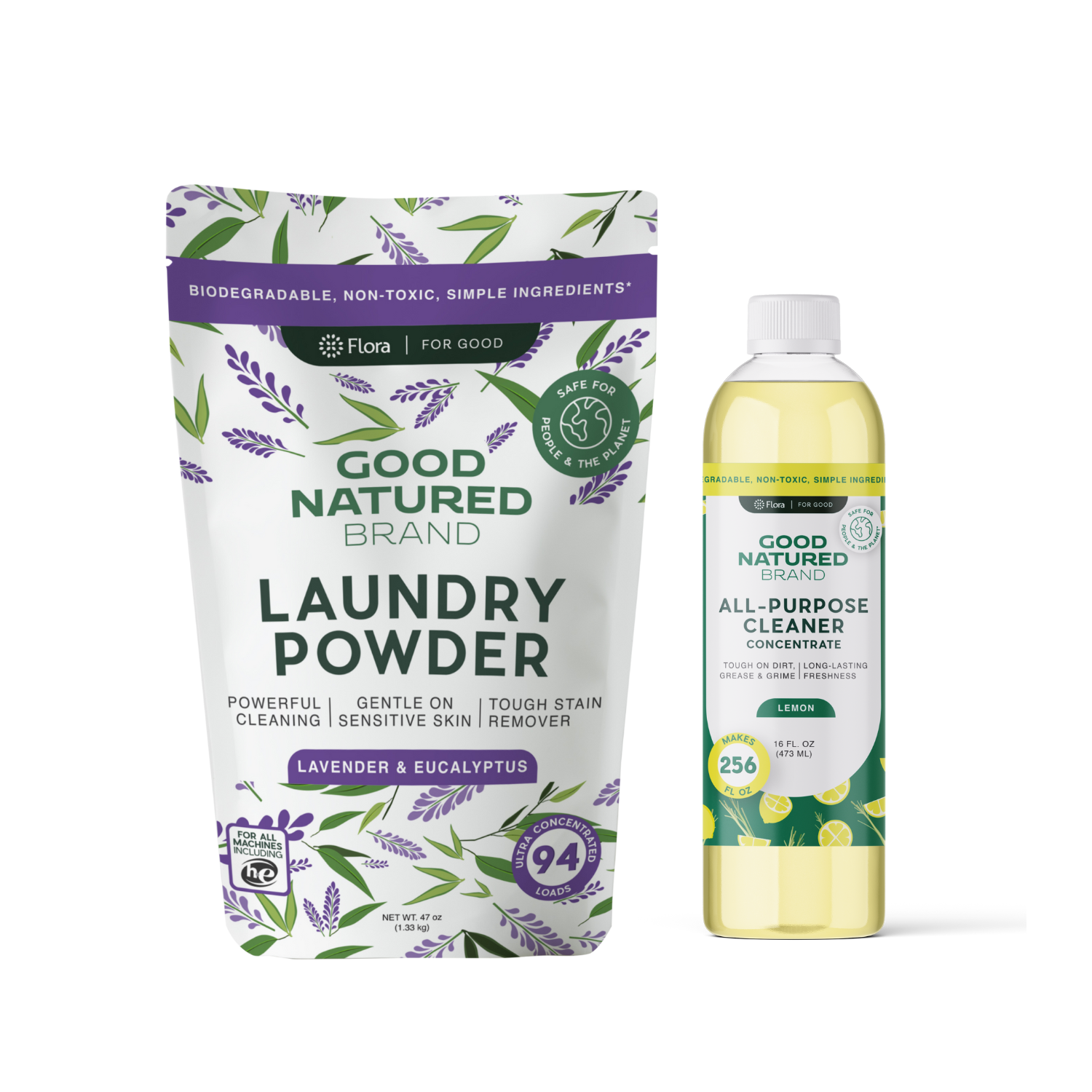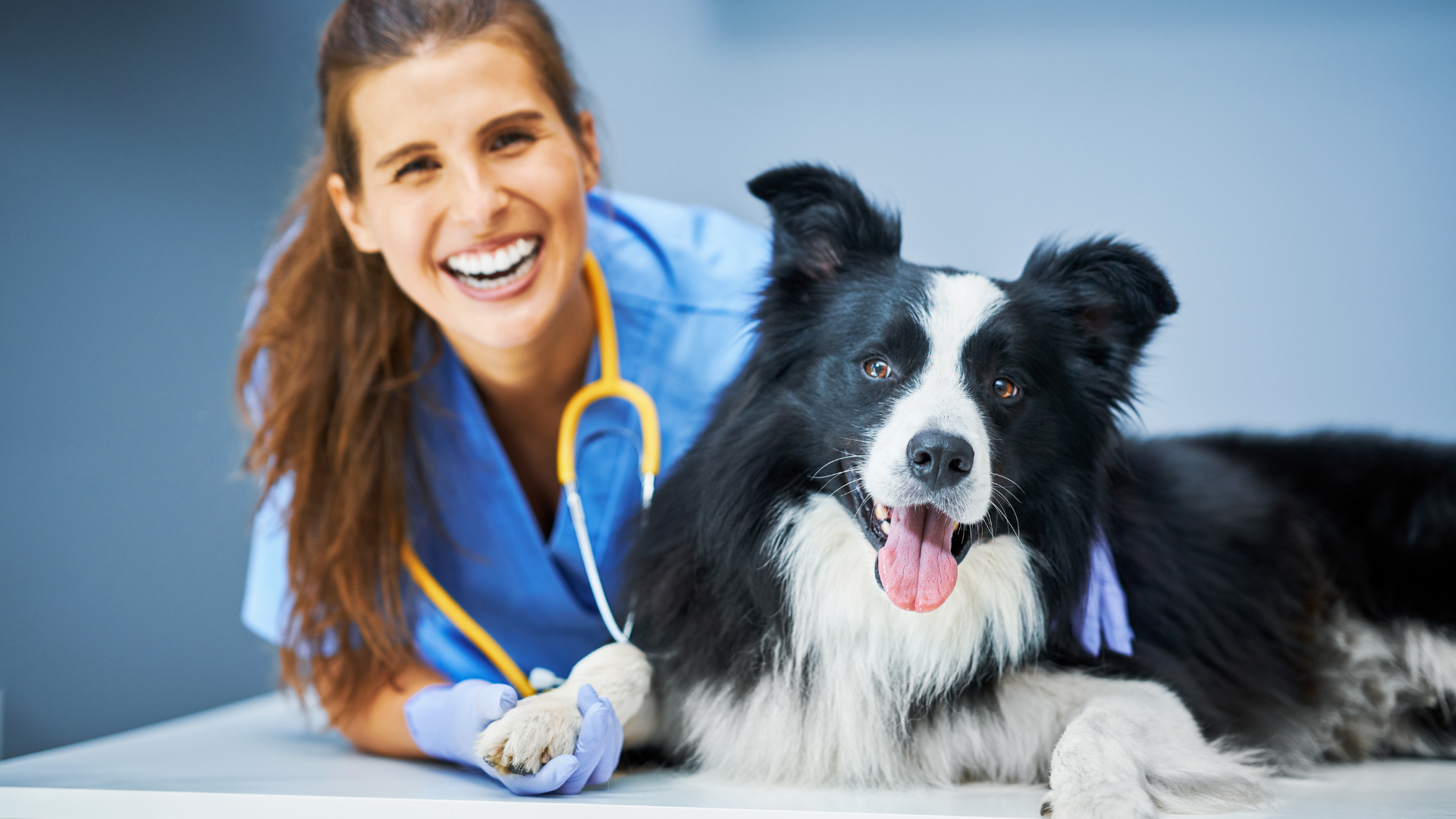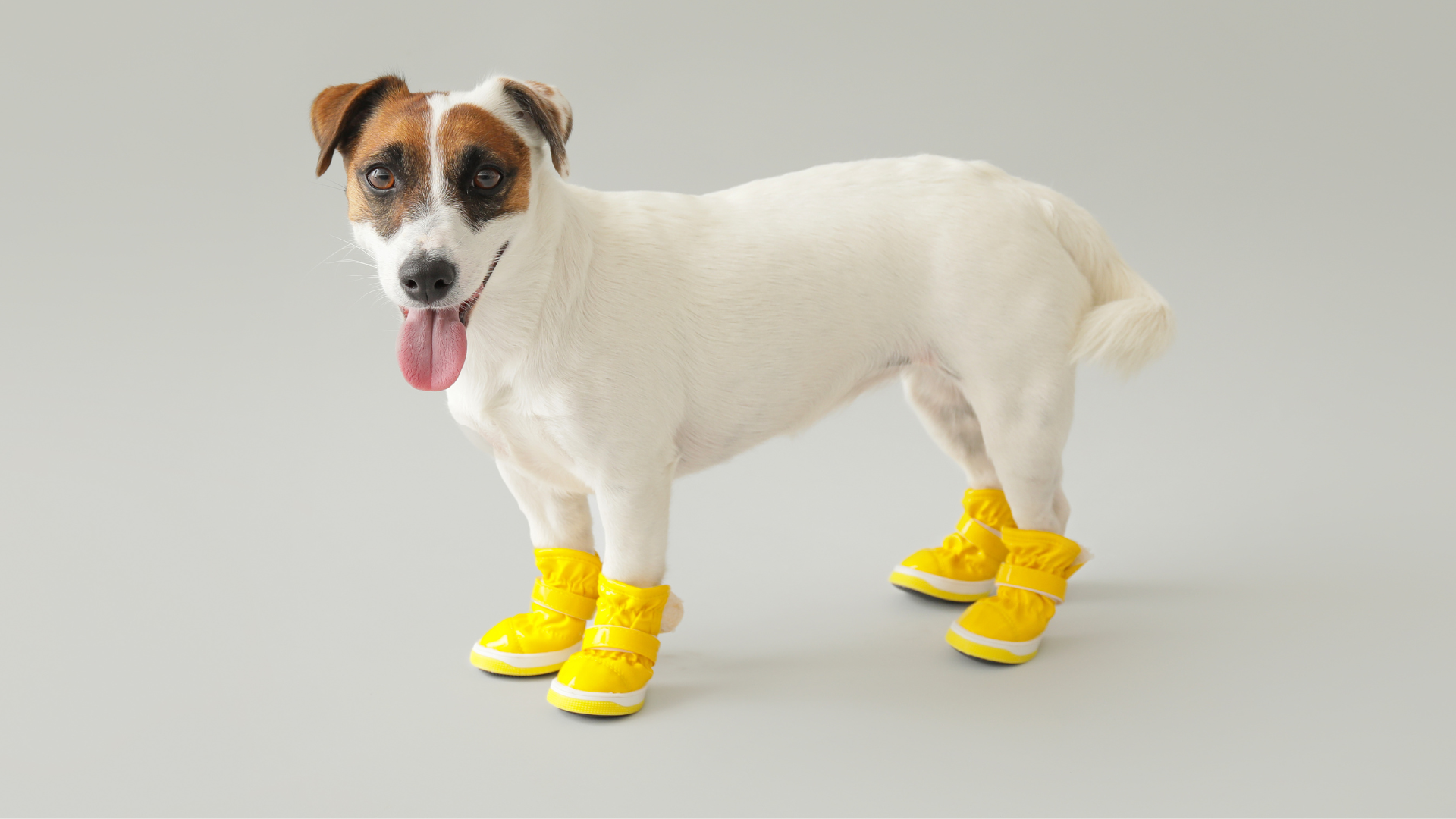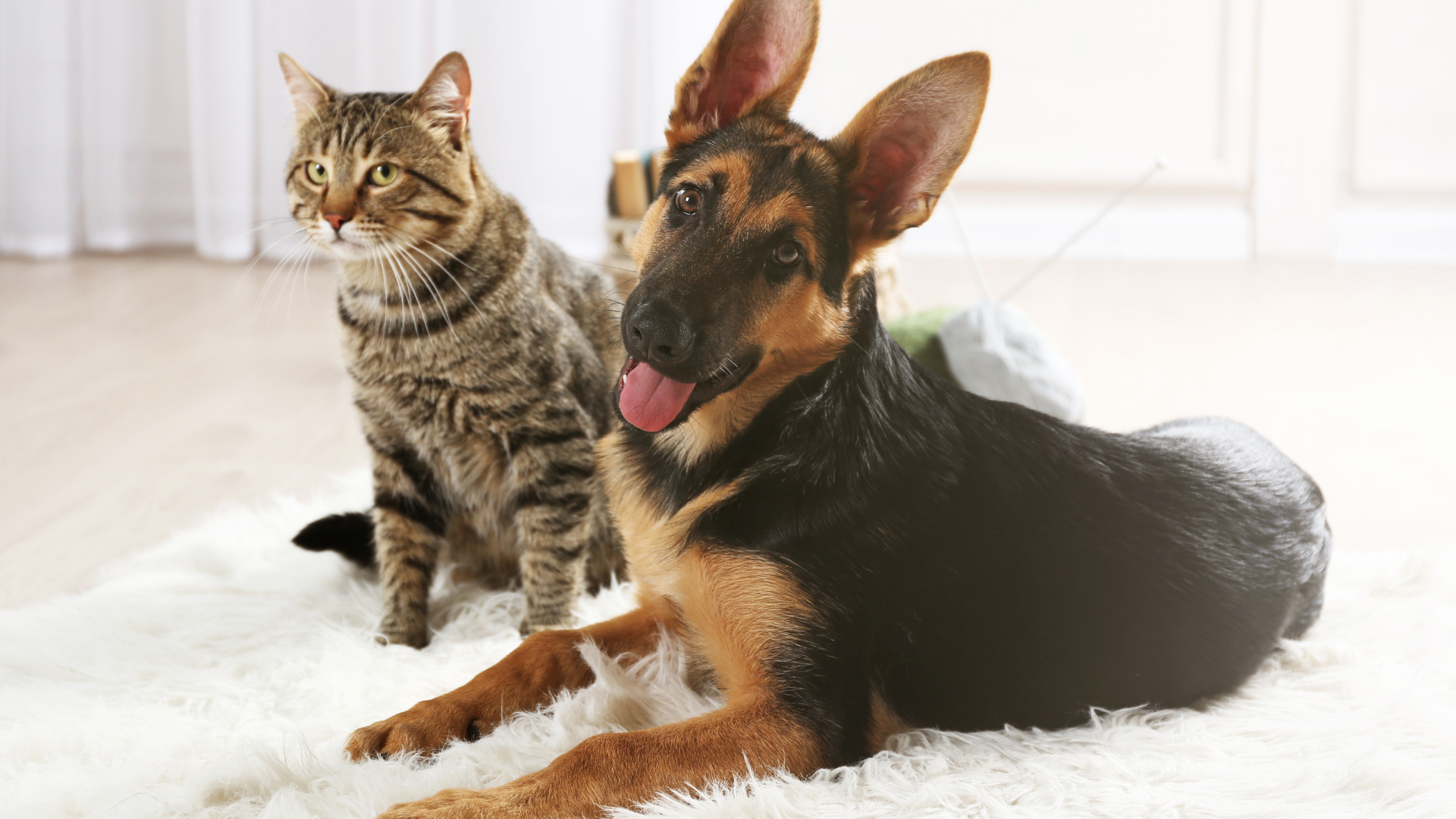Your dog walks across the kitchen floor you just mopped, then spends the next ten minutes licking his paws. What seemed like a routine cleaning task just became a potential poisoning incident, because conventional floor cleaners leave residues that pets absorb directly into their systems through grooming and skin contact.
Choosing cleaning products that work effectively without harming your pets requires knowing which ingredients pose risks, how to read labels beyond marketing claims, and which plant-based alternatives actually deliver results. This guide walks you through identifying dangerous chemicals, selecting safe products for every room, and building a cleaning routine that keeps both your home and your pets healthy.
Why Pet Safe Cleaners Matter for Every Home
When you choose cleaning products for homes with pets, look for plant-based ingredients, avoid harsh chemicals like ammonia and bleach, and check for certifications like EPA's Safer Choice that verify safety standards. Your pets are more vulnerable to chemical exposure than you might realize because they spend hours lying on floors, lick their paws after walking on cleaned surfaces, and can't tell you when something makes them feel sick. Their smaller body size means even tiny amounts of toxic substances can cause serious problems ranging from breathing difficulties to organ damage.
Think about how your dog or cat moves through your home. Unlike you, they don't wear shoes, and they're constantly in contact with the floors and surfaces you just cleaned. When your cat grooms herself or your dog licks his paws, any residue from your floor cleaner goes directly into their system. Cats face even greater risks because they lack certain liver enzymes that help break down common cleaning chemicals, making substances that seem harmless to dogs potentially deadly to felines.
The symptoms of chemical exposure can show up right away or develop slowly over months of repeated exposure. Immediate reactions include vomiting, excessive drooling, trouble breathing, and red, irritated skin. Long-term exposure might lead to liver disease, kidney problems, or neurological issues that only become obvious after significant damage has occurred.
How to Spot Unsafe Ingredients on Any Label
Reading labels carefully gives you the power to protect your pets from harmful products. Many conventional cleaners don't list every ingredient, hiding potentially dangerous chemicals under vague terms like "fragrance" or "surfactants." Look for products that provide complete ingredient disclosure and avoid those with warning words like "danger," "corrosive," or "caution" printed on the label.
Ammonia and Bleach
Ammonia creates strong fumes that irritate your pet's respiratory system, causing coughing, wheezing, and labored breathing. When your dog walks across a floor cleaned with ammonia, the residue can burn their paw pads and cause chemical burns if they lick their feet afterward. Bleach poses similar dangers and becomes even more hazardous when mixed with other cleaners, creating toxic chloramine gas that can be fatal in enclosed spaces.
Phenols and Pine Oil
Phenols appear in many disinfectants and wood cleaners, but cats cannot break down these compounds due to missing liver enzymes. Even small amounts of phenol exposure can cause tremors, seizures, liver failure, and death in cats. Pine oil, commonly found in pine-scented cleaners, contains phenolic compounds that pose the same risks and can also cause stomach upset and nervous system problems in dogs.
Phthalates and Synthetic Fragrance
The word "fragrance" on a label can hide dozens of undisclosed chemicals, including phthalates that disrupt hormonal systems in pets. These endocrine disruptors interfere with reproduction, growth, and metabolism, potentially causing health problems that aren't immediately obvious. Synthetic fragrances also trigger allergic reactions and breathing issues in sensitive pets, particularly those with asthma or other respiratory conditions.
Quats and Formaldehyde Releasers
Quaternary ammonium compounds, often listed as "quats" or ingredients ending in "ammonium chloride," are common disinfectants that cause skin reactions and respiratory problems. Formaldehyde releasers like quaternium-15 and DMDM hydantoin slowly emit formaldehyde gas over time, creating ongoing exposure to a known carcinogen. These preservatives build up in indoor air and on surfaces where your pets spend their time.
Proven Pet Friendly Cleaning Products by Room
Different areas of your home require different cleaning approaches based on how your pets use those spaces. Matching the right pet safe cleaner to each room ensures effective cleaning without compromising safety.
Kitchen Surfaces and Food Bowls
Kitchen counters and pet feeding areas demand food-safe cleaners that leave no toxic residue. Vinegar-based solutions or plant-derived cleaners work well for countertops, while pet bowls benefit from hot water and mild dish soap. Avoid using harsh disinfectants near food preparation areas, as pets may lick counters or floors where residue settles.
Living Room Floors and Carpets
Carpets and upholstery trap pet dander, hair, and odors, requiring regular deep cleaning with pet-safe products. Carpet deodorizers made from baking soda and plant-based ingredients neutralize odors without leaving harmful residues that pets inhale or absorb through their paws. For hard floors, pH-neutral cleaners diluted properly provide effective cleaning without the slippery film that some products leave behind.
Bathroom Fixtures and Litter Areas
Cat litter boxes and surrounding areas require frequent cleaning to control odors and bacteria, but harsh disinfectants can deter cats from using their boxes. Enzyme-based cleaners break down organic waste safely, while baking soda helps absorb odors without overwhelming sensitive feline noses. Bathroom surfaces can be cleaned with hydrogen peroxide-based products that disinfect effectively and break down into water and oxygen.
Laundry and Bedding
Pet bedding collects dirt, oils, and allergens that require thorough washing with detergents free from optical brighteners, synthetic fragrances, and harsh surfactants. Plant-based laundry detergents effectively remove stains and odors without leaving residues that irritate pet skin when they curl up in their freshly washed beds. Adding a natural laundry booster helps tackle stubborn pet-related stains and odors.
Safe Ingredients That Actually Work
Natural ingredients can clean just as effectively as harsh chemicals when used correctly. Understanding which plant-based components deliver results helps you choose products that protect your pets without sacrificing cleanliness.
Key safe ingredients include:
-
Baking soda: Neutralizes odors by chemically reacting with acidic and basic odor molecules rather than masking smells with fragrance
-
White vinegar: Creates an effective cleaning solution for tile, vinyl, and sealed hardwood when diluted with water
-
Accelerated hydrogen peroxide: Combines hydrogen peroxide with other safe ingredients to boost cleaning power while breaking down completely into water and oxygen
-
Enzymes: Contain proteins that break down organic matter like urine, feces, and blood at a molecular level
Baking soda is completely safe if your pet accidentally ingests small amounts during grooming. You can sprinkle it on carpets before vacuuming or add it to laundry for enhanced freshening power. Vinegar works well for routine mopping when you mix one cup with one gallon of water, though you'll want to avoid using it on natural stone surfaces like marble or granite where the acidity can cause damage.
Enzymatic cleaners work best when applied to fresh stains and given time to work, typically 10 to 15 minutes before wiping or rinsing. These biological catalysts digest the source of stains and odors rather than simply covering them up, which means the smell won't return once the product wears off.
Step-By-Step Guide to Choosing Pet Safe Cleaning Supplies
A systematic approach to evaluating cleaning products helps you make informed decisions that protect your pets while maintaining a clean home. Following these steps when shopping for new cleaners or replacing conventional products takes the guesswork out of the process.
1. Identify the Surface and Soil Type
Different surfaces and types of dirt require specific cleaning solutions. Hard floors need different products than carpets, and grease requires different treatment than pet urine. Matching your cleaner to the specific cleaning challenge ensures effectiveness without overusing products or applying inappropriate solutions that might damage surfaces or leave residues.
2. Read the Full Ingredient List
Look beyond marketing claims like "natural" or "eco-friendly" to examine actual ingredients. Products that list all components transparently demonstrate manufacturer confidence in their formulations. Be wary of cleaners that hide ingredients behind proprietary blend claims or provide only partial disclosure, as these products may contain substances you want to avoid.
3. Check Third-Party Certifications
EPA Safer Choice, Green Seal, and Leaping Bunny certifications indicate that independent organizations have verified a product's safety and environmental claims. These third-party evaluations provide more reliable assurance than manufacturer claims alone. Certified products have met stringent criteria for ingredient safety, effectiveness, and environmental impact.
4. Evaluate Scent and Ventilation Needs
Pets have significantly more sensitive noses than humans—dogs have up to 300 million scent receptors compared to our 6 million. Strong fragrances that smell pleasant to you can overwhelm and distress your pets. Choose unscented or lightly scented products made with essential oils that are safe for your specific type of pet, and always ensure good ventilation when cleaning.
5. Compare Cost per Use
Concentrated cleaners often provide better value than ready-to-use sprays, even when the initial price seems higher. Calculate the cost per use by dividing the total price by the number of applications the product provides. Concentrates also reduce plastic waste and shipping costs since you're not paying to transport water.
Using Cleaners Safely Around Cats, Dogs and Small Animals
Even pet-safe products require proper use to minimize risks. Following safety protocols protects your pets from accidental exposure during and after cleaning.
Keep Pets Out Until Surfaces Dry
Wet cleaning solutions are more likely to transfer onto paws and fur than dried residues. Keep your pets in a separate room during cleaning and for at least 15 to 30 minutes afterward, depending on ventilation and the specific product used. This waiting period allows surfaces to dry completely and any residual fumes to dissipate.
Store Products in Locked Cabinets
Curious pets may investigate cleaning supplies left within reach, potentially chewing through bottles or knocking them over. Store all cleaning products in secured cabinets, even those labeled pet-safe, to prevent accidental ingestion or spills. Puppies and small animals are particularly prone to exploratory behavior that can lead to dangerous exposures.
Dilution and Rinse Rules
Always follow dilution instructions precisely—using products at full strength when dilution is recommended can leave excessive residue and waste product. Rinse food contact surfaces, pet bowls, and areas where pets frequently lick or rest, even when using pet-safe cleaners. This extra step removes any remaining product and provides an additional safety margin.
What to Do if Ingestion Occurs
If your pet ingests any cleaning product, immediately contact your veterinarian or the ASPCA Animal Poison Control Center at (888) 426-4435. Have the product label available to provide specific ingredient information. Don't induce vomiting unless specifically instructed by a veterinary professional, as this can sometimes cause more harm than good depending on the substance involved.
Transitioning From Chemicals to Plant-Based Pet Safe Cleaners
Switching your entire cleaning routine at once can feel overwhelming and expensive. A gradual transition allows you to test products, spread out costs, and adjust to new cleaning methods without disrupting your household routine.
Start by identifying which conventional cleaners in your home pose the greatest risk to your pets. Replace high-risk products first—those used most frequently or in areas where your pets spend the most time. You might begin with floor cleaners and carpet treatments before moving to less critical items like window cleaners or specialty products.
Before committing to a new cleaning product throughout your home, test it in a single room to evaluate its effectiveness and observe your pet's reaction. This approach helps you identify any sensitivities before widespread use and allows you to compare cleaning performance against your previous products. Monitor the test area for several days to ensure the cleaner meets your standards.
Watch for changes in your pet's behavior or physical condition when introducing new cleaning products. Signs of sensitivity include excessive scratching, redness or irritation on paw pads, sneezing, coughing, or avoiding areas that were recently cleaned. If you notice any of these symptoms, discontinue use immediately and consult your veterinarian if symptoms persist.
Build Your Budget-Friendly Pet Safe Cleaning Kit
You don't need dozens of specialized products to maintain a clean, pet-safe home. A focused collection of versatile cleaners handles most household cleaning tasks effectively while keeping costs manageable.
Essential products for every pet owner include:
-
Multipurpose concentrate: One plant-based cleaner that safely tackles counters, appliances, and hard surfaces throughout your home
-
Carpet deodorizer: Baking soda-based powder that neutralizes pet odors in carpets and upholstery without harsh chemicals
-
Laundry booster: Natural additive that enhances your regular detergent's ability to remove pet-related stains and odors from bedding and clothing
-
Floor cleaning solution: pH-balanced formula safe for all floor types that won't leave slippery residues or harmful traces
This streamlined approach saves money compared to buying separate products for every surface and reduces the number of bottles you store under your sink. Investing in quality concentrates that you dilute yourself provides the best value while minimizing packaging waste.
Keep Odors Away With Pet Friendly Cleaners, Not Fragrance
True odor elimination requires breaking down odor-causing molecules rather than covering them with perfumes. Pet-safe approaches to freshness focus on neutralization and prevention instead of masking.
Enzyme-based cleaners excel at eliminating organic odors by digesting the proteins, bacteria, and other compounds that create smells. Unlike air fresheners that temporarily mask odors with fragrance, enzymatic products remove the source completely. For ongoing freshness, regular cleaning prevents odor buildup rather than requiring intensive treatments to address accumulated smells.
Proper ventilation complements cleaning by removing airborne particles and preventing moisture buildup that contributes to musty odors. Opening windows during and after cleaning, using exhaust fans, and running air purifiers with HEPA filters all help maintain fresh indoor air without relying on synthetic fragrances that can irritate your pet's sensitive respiratory system.
Shop Pet-Safe Cleaning Essentials From Good Natured Brand
Good Natured Brand offers a complete line of plant-based cleaning products specifically formulated for homes with pets. Their carpet deodorizers use baking soda and natural ingredients to eliminate odors safely, while their all-purpose cleaners tackle everyday messes without harsh chemicals. The laundry powder and booster products effectively remove pet-related stains and odors from bedding, clothing, and other washable items.
Each Good Natured Brand product is designed with both effectiveness and safety in mind, using ingredients that clean thoroughly while remaining gentle on pets, children, and the environment. With free shipping on orders over $30 and a 30-day return policy, trying their pet-safe cleaning solutions comes with minimal risk and maximum peace of mind.
Shop pet-safe cleaning essentials to discover how plant-based formulations can transform your cleaning routine without compromising your pets' health.
FAQs About Pet Safe Cleaning Products
Does a cleaner labeled baby safe automatically make it pet safe?
No, baby-safe products may still contain ingredients harmful to pets since animals metabolize chemicals differently than humans. Cats, in particular, lack liver enzymes that process many substances considered safe for babies. Always check ingredient lists specifically for pet toxicity warnings rather than assuming baby-safe means pet-safe.
How long do plant-based pet safe cleaners stay effective on the shelf?
Most plant-based cleaners maintain effectiveness for two to three years when stored properly in cool, dry conditions away from direct sunlight. Natural ingredients can separate or change consistency over time, but this doesn't necessarily indicate reduced effectiveness. Shake concentrates before use and check for any off odors that might signal degradation.
Why do cats react differently to certain essential oils than dogs?
Cats lack specific liver enzymes called glucuronyl transferases that help metabolize many essential oils, making them more sensitive to ingredients like tea tree, eucalyptus, and citrus oils that dogs can typically tolerate. This metabolic difference means compounds accumulate in cats' systems rather than being broken down and eliminated, leading to toxicity even from small exposures. Always verify that any essential oil-containing product is explicitly labeled safe for cats before use in feline households.
